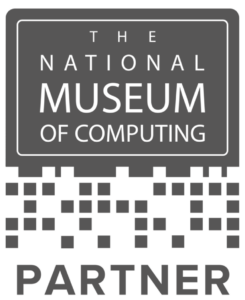Fake News is in the news these days. Of course, there is a degree of circular argument in whether you can believe what they tell you about fake news, but let’s just understand that what people take from media affects their attitudes and expectations.
It’s not just news though. What we see on TV and in movies affects our expectations in real life too. That applies to our understanding of service management as it does to everything else. So … what do the movies do that damages our ability to get service management right? Well, that’s the topic of my talk at the itSMF UK regional meeting at the University of Glasgow on 6th June and the Service Desk and IT Support show (SITS17) on 8th June.
Excitement is usually not good news
For most of us, despite knowing that what we watch is a dramatized and an exaggerated version of reality: entertainment not documentary, nonetheless we let it into our heads.
What that means for many of us is a failure to appreciate that in “real life” IT service management (ITSM) we should be seeking boredom rather than excitement and adventure. It’s all too easy to get distracted by the hero culture. In the movies our heroes rescue us from crashing trains or alien invasion. In our ITSM workspace the heroes repair networks or rebuild broken servers, rewrite code, or recover our lost files. If we could only get the service design and support right then we shouldn’t need the heroics to fix things, because they wouldn’t break in the first place.
Boredom isn’t the only cherish-able virtue we get distracted from though. At both events I’ll also wander through the realms of the:
- Relative rarity of geniuses
- The truth behind Stonehenge
- Differences between inventing products and delivering services
- Financial benefits of teleportation
There might also be some tangential discussion of James Bond, his bosses both real and imagined, and what they might choose to talk to the media about. All delivered with some degree of an ITSM context. Then rounded off with some opinions on how you might persuade your managers and customers to plump for boredom over excitement and get some credit for that boredom.
What we should be seeing
But, of course, you already know about TV and the movies, and you know a thing or two about service management too. The real point of this talk is to let all that knowledge drive us towards delivering the right kind of service support and improvement.
Specifically we hope you might be taking away some ideas to help you:
- Take credit for things that are effective rather than innovative. That might mean doing something less interesting to you, but more use to your organisation.
- Understand what good looks like to customers before trying to deliver it. Sprinting off in the wrong direction might look impressive but it won’t take you where you need to be.
- Why practice is possible – and valuable – in service management. We all learn from mistakes and get better with practice, but there are ways to do that without risking damage to your business.
Hopefully it will be entertaining to listen to. In Scotland, I’m also looking forward to running a practical session with delegates off the back of my presentation.
Then, at SITS my session is on the second afternoon so I’ll be competing not only with star speakers in other streams but the inevitable event fatigue and a possible rush to get home, vote and wallow in joy/despair at the election results, depending on your political leanings, and whether the electorate choose to opt for frying pan or fire.
For myself, I fully intend to enjoy the whole of the SITS experience and what it has to offer: that rare combination of a snapshot of where the industry stands these days, two days of meeting friends and sharing good company, all along with a mix of interesting talks and good ideas.
See you there?

Ivor Macfarlane
Ivor Macfarlance has been active in the delivery and management of services since 1976 and with IT Service Management since 1984, initially as IT Manager within UK Civil Service and subsequently as author, consultant and trainer. Ivor is actively involved in the development process for all elements of the ITIL/BSI best practice in IT Service Management, he was an author for ITIL V1, V2 and V3 and for BS15000 (the standard that was fast tracked to become ISO/IEC20000).


